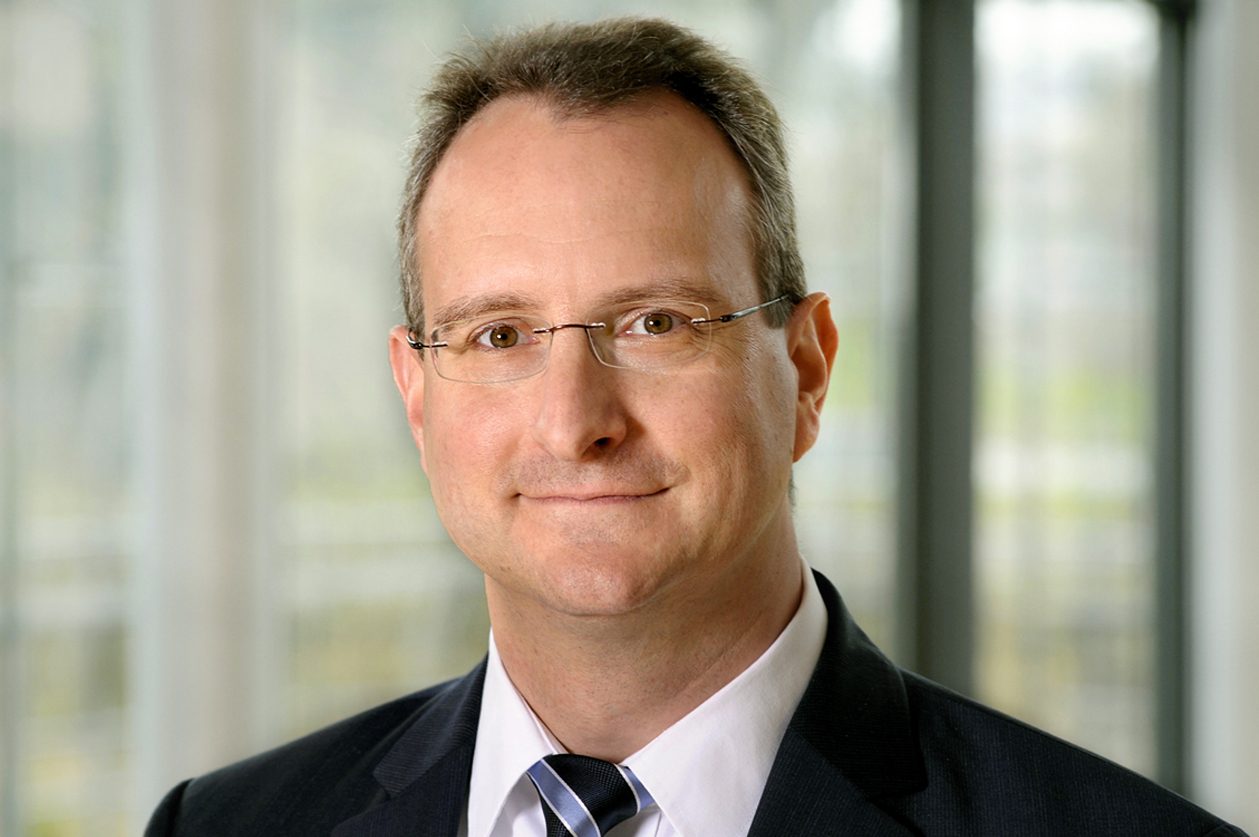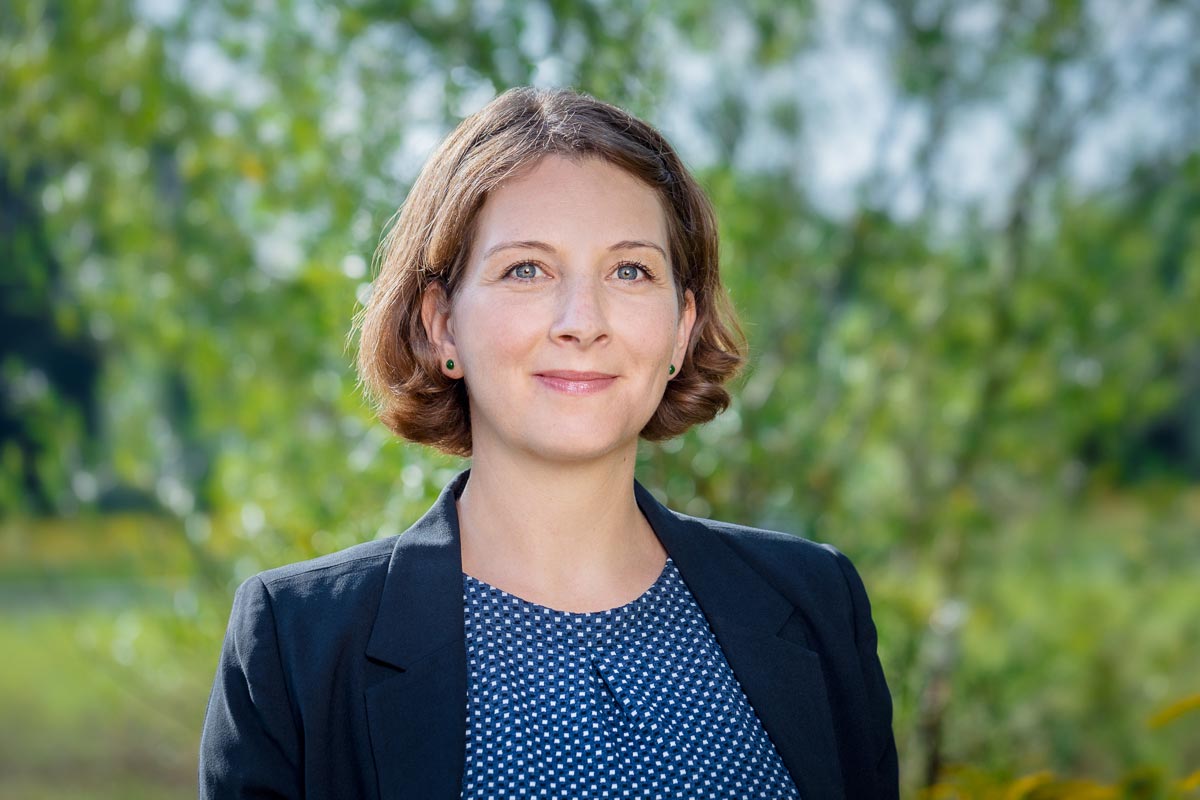
Institute Director, Professor, Researcher: Alexander Böker and his versatile work as Director of the Fraunhofer Institute for Applied Polymer Research IAP
Since 2015, Prof. Dr. Alexander Böker has been Director of the Fraunhofer Institute for Applied Polymer Research IAP and at the same time the Chair of Polymer Materials and Polymer Technology. A short portrait of an institute director whose scientists are researching, among other things, materials for a more sustainable world.
Research for a better world – a task that requires patience
Anyone who takes a look at the research projects of the Fraunhofer Institute for Applied Polymer Research (IAP) will quickly notice that the focus here is on research into solutions that enable more sustainable economic activity and can improve people’s lives. This research means work – and a great deal of patience. Prof. Alexander Böker is aware of this responsibility. Since the beginning of 2015, he has been Head of the Fraunhofer IAP and thus responsible for an institute that currently employs 260 people (as of September 2020), 110 of whom are scientists and 95 technical staff.
He experienced just how challenging this task is when he took office in 2015, when his predecessor, the former head of the institute Prof. Dr. Hans-Peter Fink, advised him to be patient: “The Fraunhofer IAP is not a sprint, but a marathon. But you have to run the marathon to the end and you have to plan your route well if you want to be the first to cross the finishing line,” Prof. Böker recalls the words of his predecessor.
Polymers – Molecules with incredibly diverse applications
When Prof. Böker talks about the research work of his colleagues, he quickly goes into a state of excitement. After all, as the name suggests, the Fraunhofer IAP is concerned with research into polymers. These are long-chain molecules that are indispensable in our everyday lives. They are an integral part of cell phones, computers and modern LEDs and are built into aircraft or vehicles. But they are also found in quite different things: “For example, one of our scientists has developed a corneal implant for the eye. It is used for patients who have lost their eyesight because the cornea has been damaged,” says Prof. Dr. Alexander Böker. The success has been astonishing: “By using the artificial cornea, these patients can get 30-40% of their vision back,” he explains.
How the Fraunhofer IAP investigates the creation of alternatives to fossil fuels
A large proportion of the polymers that are processed in objects are produced synthetically. Since crude oil is usually the source raw material for this, synthetic production has some disadvantages. Firstly, crude oil is a fossil raw material that is only available in limited quantities. On the other hand, some of the waste is difficult to break down in the environment.
For this reason, biopolymers are an important branch of research at the Fraunhofer IAP. These are natural polymers such as cellulose, which occurs for example in trees and leaves. In the field of bio-based carbon fibers, the researchers at the Fraunhofer IAP have achieved several milestones: “Thanks to a newly developed process, we have succeeded in producing bio-based carbon fibers,” says Prof. Böker. These could then be used in aircraft, cars, sports equipment or wind turbines.
Three jobs: Institute Director, Professor, Researcher
As Head of the Fraunhofer IAP, Prof. Böker ensures that basic research in the field of polymers is continuously advanced, that new momentum is generated and that top-level research is guaranteed. Prof. Böker is very well networked and is very interested in finding new synergies for the research work of the scientists at the institute. In particular, he is personally committed to strategic partnerships with other institutes and companies. In his role as head of the Fraunhofer IAP, he himself also emphasizes his role as a pioneer: “My job is to ensure that my employees are given opportunities and chances to advance research and development in their fields in the best possible way.”
In addition to his challenging task as head of the Fraunhofer Institute for Polymer Research, Prof. Alexander Böker holds the chair for polymer materials and polymer technology at the University of Potsdam. There he holds lectures, and supervises doctoral candidates, bachelor and master students. A task, which he accomplishes with great passion: “That simply belongs to it and if this were not so, then I would also miss something,” says Böker.
He also highly regards Potsdam Science Park as a research location because of its excellent location: “I always say that we work where others go on vacation,” he says with a smile on his face. “When the sun rises over the Science Park in the morning in this beautiful natural setting here in Potsdam-Golm, I am reminded every day what a great working environment I have.” But the biggest advantage is the proximity to other institutes, universities and companies. For example, the Max Planck Institute of Colloids and Interfaces is located in the direct vicinity, as is neighboring institute, the Fraunhofer Institute for Cell Therapy and Immunology IZI-BB. Böker finds the rapid growth and expansion of the Potsdam Science Park positive. His conclusion: “It is wonderful to see how the Science Park is now developing.
Photo: Prof. Dr. Alexander Böker © Manuela Zydor
This blog is funded by the European Regional Development Fund (ERDF) and the State of Brandenburg.
Contact

Julia Hinz
Site marketing
julia.hinz@potsdam-sciencepark.de + 49 331 237 351 109